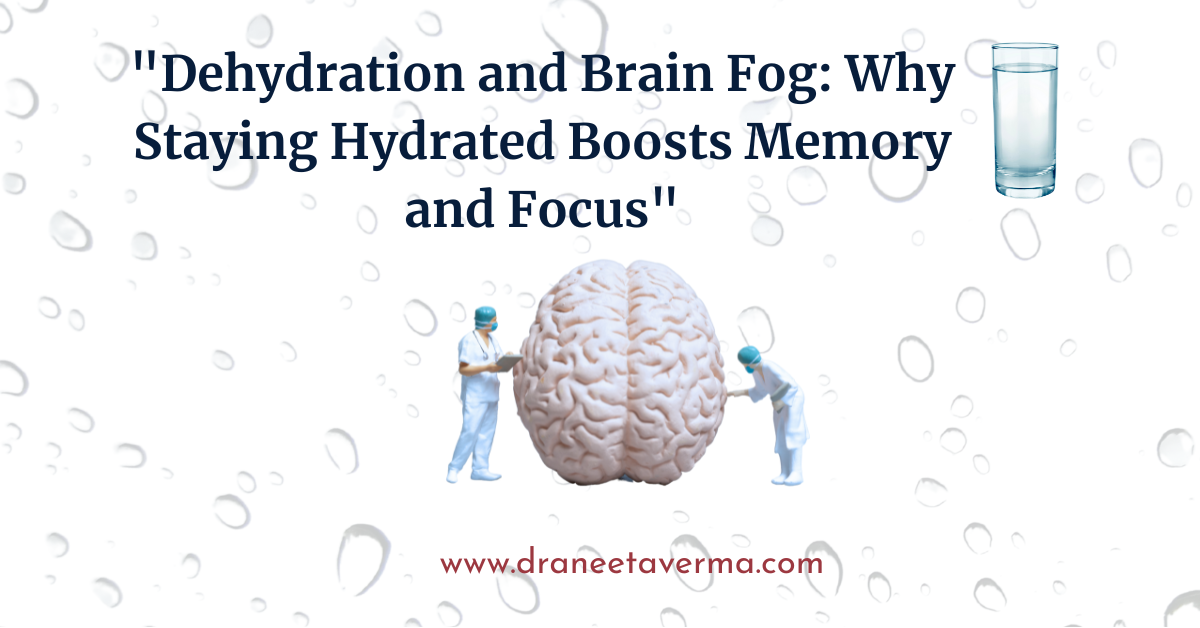+918048051883

This is your website preview.
Currently it only shows your basic business info. Start adding relevant business details such as description, images and products or services to gain your customers attention by using Boost 360 android app / iOS App / web portal.
Think Before You Drink: How Dehydration Sabotag...

Think Before You Drink: How Dehydration Sabotages Your Memory and Focus In today’s fast-moving world, staying sharp and mentally agile is more important than ever. Yet many people overlook a simple but crucial factor affecting brain performance: hydration. Studies show that even mild dehydration can impair attention span, short-term memory, and long-term problem-solving abilities. If you’re feeling forgetful, distracted, or mentally sluggish, the solution might be as simple as drinking more water. The Brain and Water: An Essential Connection Your brain is about 75% water. Water helps deliver nutrients to brain cells, remove toxins, and maintain the proper balance of chemicals and electrical signals. When your body lacks enough fluids, brain cells cannot function optimally. As a result, cognitive functions such as memory, attention, and critical thinking start to decline — often before you even feel physically thirsty. How Dehydration Affects Attention Span Attention span is your brain’s ability to concentrate on a task without becoming distracted. Dehydration leads to a reduction in blood flow to the brain, which decreases oxygen and nutrient delivery. This makes it harder for you to stay focused, reduces your mental endurance, and increases feelings of fatigue and irritability. Even losing just 1-2% of body water can make a noticeable difference in your ability to concentrate and maintain attention over time. The Impact of Dehydration on Short-Term Memory Short-term memory allows you to store and quickly access information for brief periods — like remembering a phone number or a to-do list. Dehydration disrupts the communication between neurons, leading to slower information processing and weaker memory recall. When you're dehydrated, you may struggle to remember simple details, misplace items, or find it harder to retain new information. Problem-Solving and Critical Thinking Decline Long-term cognitive tasks such as planning, organizing, and problem-solving require a well-hydrated brain. Dehydration impairs executive functions located in the brain’s frontal lobe, making complex thinking and decision-making harder. Research shows that individuals who are dehydrated perform worse on tasks requiring mental flexibility, logical reasoning, and problem-solving — key skills needed for success in both personal and professional life. Early Signs of Dehydration You Shouldn’t Ignore Recognizing the early symptoms of dehydration can help you take action before it affects your cognitive abilities. Common early signs include: - Headaches - Fatigue - Dry mouth - Dizziness - Trouble concentrating - Mood swings or irritability Waiting until you feel thirsty is often too late — thirst is a late sign of dehydration. Regular fluid intake throughout the day is crucial for maintaining peak mental performance. Tips to Stay Hydrated for Optimal Brain Function -Drink water consistently: Don’t wait until you’re thirsty. Aim for small, frequent sips throughout the day. - Eat hydrating foods: Fruits like watermelon, oranges, and cucumbers have high water content. - Monitor your urine: Pale yellow urine usually indicates good hydration, while dark yellow or amber suggests dehydration. - Limit dehydrating beverages: Excessive caffeine, alcohol, and sugary drinks can contribute to dehydration. - Carry a reusable water bottle: Having water on hand makes it easier to sip throughout the day. A Simple Habit for a Sharper Mind: Maintaining proper hydration is one of the easiest yet most powerful ways to protect your cognitive health. By ensuring your brain has enough water, you can improve your attention span, enhance short-term memory, and strengthen your long-term problem-solving abilities. Your brain works hard for you every day — give it the hydration it needs to perform at its best. Sometimes, reaching your highest potential really does start with a simple glass of water.

